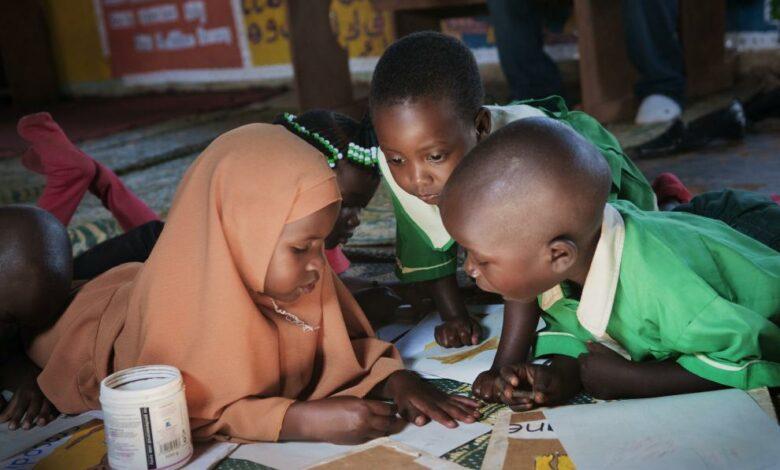
6 Problems Facing Early Childhood Education In Nigeria
Problems Facing Early Childhood Education In Nigeria – The number of out-of-school children in Nigeria reached up to 20 million as of October 2022, according to the United Nations Educational, Scientific and Cultural Organisation (UNESCO). Early childhood education is a critical aspect of a child’s development and sets the foundation for their future success. It is not only important for the nation, as it has the potential to shape the future workforce, but also in furthering education as it helps lay the foundation for later academic achievements.Information Guide Nigeria
The cognitive development of children during this period is crucial, and an absence of proper education can have lasting detrimental effects. By diving into the issues of early childhood education, we can gain a better understanding of its importance and the potential for improvements.
👉 Relocate to Canada Today!
Live, Study and Work in Canada. No Payment is Required! Hurry Now click here to Apply >> Immigrate to CanadaRead Also: 7 Problems Facing By Livestock Industry In Nigeria
What is Early Childhood Education?
Kids often start school in Nigeria at about when they are 5 years old. Early childhood education is the teachings offered to kids who are not yet in primary school. Young children from ages 3 to 5 years can get a head start in their elementary learning, within the four walls of a classroom through early childhood education. Problems Facing Early Childhood Education
Early childhood education is seen as a preschool where the kids can merge and make sense of what they have learnt at home within a structure. The intention is to arouse the children’s appetite for learning, and their curiosity and impart basic knowledge in a playful, relaxed setting, where they can be expressive. This structure or setting will enable them to develop the social and cognitive ability to withstand and assimilate in other learning environments.
Read Also: 7 Problems Facing By Guidance And Counselling In Nigeria
Problems of Early Childhood Education in Nigeria
- The Increase In Early Childhood Institutions: There is an increase in the number of “schools” that offer preschool education in various forms. In Nigeria, public schools offering this kind of education are few and as such the private sector has flooded the country with numerous institutions. While it might seem encouraging, it is not, these newly private creches and preschools are often mediocre. It is now a business opportunity, so the increase in their numbers has reduced the quality. They have become places parents can contract to keep their children safe, rather than impart knowledge and help the kids develop.50 Best University In Nigeria To Study Law
2. Lack Of Competent Teachers: The number of instructors and teachers who can professionally handle kids’ development is decreasing. We see less and less quality in the creche and precursory school instructors because, in a bid to cut costs, many schools do not employ those who are even competent enough to speak fluent English or teach arithmetic’s. Graduates in child education are rare and those who are employed to teach the kids do not have the technical competence to do so.10 Best University To Study Fashion Designing In Nigeria
3. Ineffective Supervision Of Early Childhood Institutions: The governmental institution only pays lip service when it comes to child education. There is no central coordination, no scheme of work, no infrastructural requirements and no centrally enforced primary goal for early childhood education. This leaves different schools adopting different methods for what they think childhood education is. Moreover, early childhood institutions do not go under review, unlike primary and secondary schools. This allows the school management to be lax in providing adequate infrastructure and employing only individuals with the requisite skills to handle the kids.NYSC Portal
4. The Ratio Of Teachers To Pupils: There are hardly any preschools that have the right balance of pupil-to-teacher. This ratio is necessary for preschool because each child is unique and so it becomes imperative to tend to the needs of each child differently in bringing them to level ground. Teachers must understand the traits of each pupil because, unlike in primary school, the teacher is in the best position to provide adequate feedback. Asides from this, more pupils means less time teaching and more time organizing and controlling the classroom.
Read Also: 6 PROBLEMS FACING EARLY CHILDHOOD EDUCATION IN NIGERIA
👉 Relocate to Canada Today!
Live, Study and Work in Canada. No Payment is Required! Hurry Now click here to Apply >> Immigrate to Canada5. Underpaid and Undermotivated Teachers: Inadequate teacher salaries and benefits will lead to high teacher turnover rates. This inadequacy will make it difficult to retain competent teachers, leading to high turnover rates that can cause instability in the classroom due to frequent changing of teachers and will make competent teachers chase better salaries rather than commit themselves to educate children.JAMB Portal
Teachers may be more likely to seek employment in other fields, leading to a shortage of teachers in the education system. Governments and schools need to provide competitive salaries and benefits to attract and retain qualified teachers, who can provide children with the best possible education.
6. Lack of Involvement by Parents: In Nigeria, parents are often not involved in their child’s school activities or homework. They do not attend parent-teacher conferences or other important events and on occasion, they disregard the education and development of children, particularly girls.JAMB Result
This lack of parental involvement and support can negatively impact the quality of early childhood education and the effectiveness of early childhood programs. It is important for parents to be active participants in their child’s education and to support schools in providing the best possible education for their children.
Read Also: 9 PROBLEMS FACING EDUCATIONAL RESEARCH IN NIGERIA
Solutions
- Increase Government Supervision: Providing the necessary supervision for education can improve the quality offered by early childhood programs. Placing infrastructural and educational material requirements should be prioritized alongside teacher requisites.200 romantic love message for her3.
- Attract And Retain Qualified Teachers: Competitive salaries and benefits to teachers will help attract and retain qualified professionals. This will bring stability and improvement to the education system.
- Parental Involvement And Support: Encouraging and promoting parental involvement in their children’s education can improve educational outcomes for children.105 good morning messages4.
- Professional Development For Teachers: Teachers should be provided with ongoing training and professional development opportunities that can help them improve their skills, stay current with best practices, and provide a better quality of education for children.
Read Also: Problems Facing democracy in Nigeria
Conclusion
Education is the bedrock of development and children are at the core of what the future of a nation has to offer. It is then necessary that all stakeholders in early childhood education come together and form a common front to combat deficiencies and improve the quality of education in Nigeria.
Check JAMB RESULT
Check and Confirm: How much is Dollar to Naira






